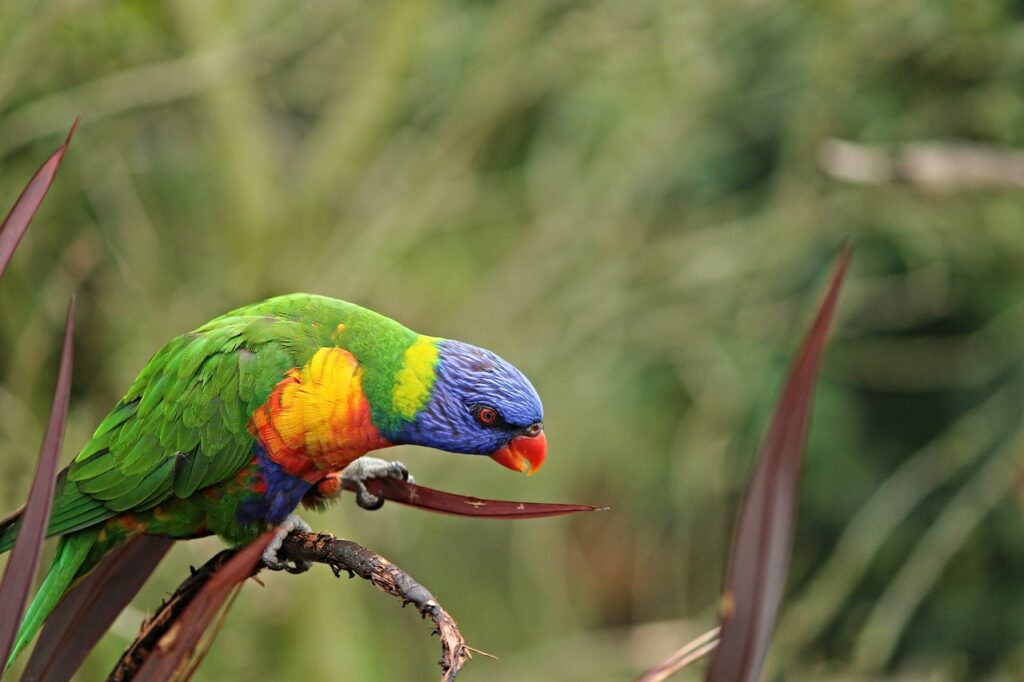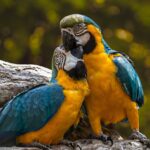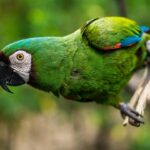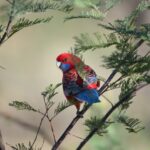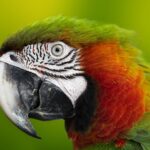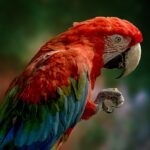Can Parrots Eat Biscuits: Understanding the Risks
Parrots, delightful creatures known for their vibrant feathers and intelligent nature, bring immense joy to our lives. As responsible pet owners, it’s crucial to ensure that we provide them with a nutritious diet that meets their specific dietary requirements. However, when it comes to biscuits, it’s important to highlight the potential risks they pose to our feathered friends.
The Dangers of Biscuits for Parrots
While biscuits may be a beloved snack for us humans, they are not suitable for our parrot companions. These baked delights are typically high in refined sugars, unhealthy fats, and artificial additives, which can have detrimental effects on the health of our feathered friends.
Excessive consumption of biscuits can lead to obesity in parrots, which in turn can pave the way for various health concerns, such as cardiovascular diseases, joint problems, and diabetes. Additionally, the high sugar content can lead to tooth decay, putting the overall dental health of your parrot at risk.
Potential Symptoms and Reactions
If a parrot consumes biscuits, they may show a range of symptoms and reactions. The high sugar content can cause sudden spikes in their blood sugar levels, leading to hyperactivity followed by a crash, which can leave them feeling lethargic.
Moreover, the additives present in biscuits, such as artificial flavors and preservatives, can trigger allergic reactions in parrots. These reactions may manifest as skin irritations, feather plucking, gastrointestinal distress, or respiratory difficulties. It’s crucial to be vigilant and identify any adverse effects promptly.
Exploring Safer Alternatives
While biscuits may be off the menu for your parrot, there are plenty of safe and nutritious alternatives you can offer. Opt for natural treats such as fresh fruits and vegetables, which provide essential vitamins, minerals, and dietary fiber.
Parrots also enjoy seeds, nuts, and whole grains, which not only serve as a healthier snack option but also provide them with vital nutrients like omega‑3 fatty acids and antioxidants. Always ensure that any treats you offer are appropriate for your specific parrot species and consult with a veterinarian if unsure.
Preventing Access to Biscuits
Prevention is key when it comes to protecting our parrots from the dangers of biscuits. It’s crucial to store biscuits in secure containers, out of reach from curious beaks. Additionally, ensure that any family members or visitors are aware of the risks associated with sharing biscuits with parrots, preventing accidental ingestion.
Creating a designated feeding area for your parrot, with safe and approved food options, helps to minimize the chances of them accessing harmful substances. Remember, our feathered companions rely on us for their well-being, so it’s our responsibility to safeguard them from potential harm.
Conclusion
In conclusion, biscuits are not suitable for parrot consumption due to their high sugar and unhealthy fat content, as well as the potential for allergic reactions. Opting for safer alternatives like fresh fruits, vegetables, seeds, nuts, and whole grains ensures that your parrot receives a well-balanced diet. By taking preventative measures, such as securely storing biscuits and educating others about the risks, we can promote responsible pet care and prioritize the health of our beloved parrot companions.

